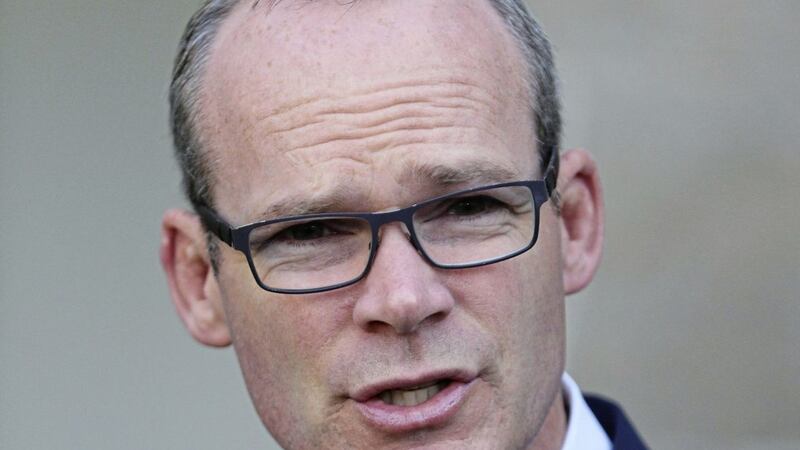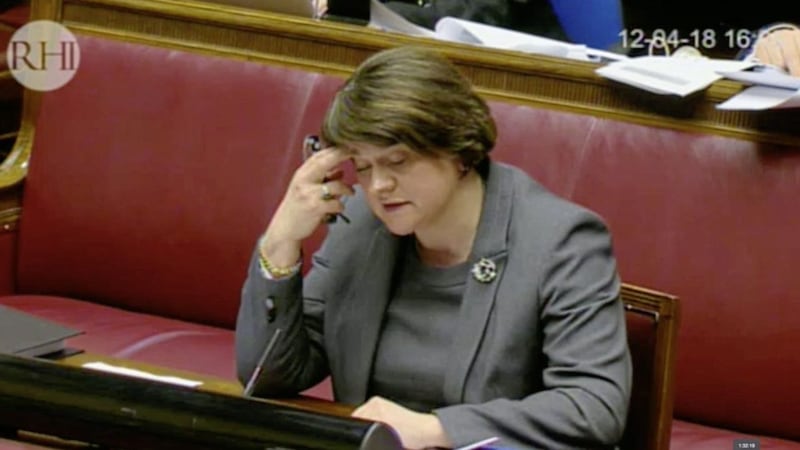There have been renewed calls for the convening of the British-Irish governmental conference amid reports that efforts by Dublin to reboot the forum were vetoed by London.
Nationalists believe the conference offers an opportunity to break the Stormont deadlock and that it should be used to launch legislation mirroring the draft deal rejected by the DUP last month.
However, The Times reported that moves by Tánaiste Simon Coveney to convene an intergovernmental conference were blocked by the British – fuelling speculation that pressure had been brought to bear by the DUP, whose leader Arlene Foster has previously labelled the forum a "talking shop".
Designed under the Good Friday Agreement to deal with matters which were not devolved to Stormont, the British-Irish conference last met in 2007.
The tánaiste confirmed yesterday that Dublin had lodged a request for the conference to be convened with the British but had yet to receive a reply.
SDLP president Colum Eastwood said there was no reason for the UK government to block the conference.
"In the absence of power sharing in Belfast, both traditions on this island must be represented in decision making – the British government cannot hold a veto over that process," he said.
"After months of drift without any other proposals for solutions to restore devolution being put back on the table, the British government needs to explain what next if not the intergovernmental conference."
But Ulster Unionist chief whip Steve Aiken warned Fine Gael about using Northern Ireland and the Good Friday Agreement for "electioneering purposes" in the Republic.
He called Mr Coveney's reported request for a convening of the conference a "red herring".
"The Irish Government is trying to manoeuvre its way into having a say over how Northern Ireland is governed, trampling over the Belfast Agreement as it does so," he said.
"If they`re not trying to subvert the agreement they are using Brexit to pursue Irish unity by other means –they have been repeatedly warned by my party to stop continually trying to undermine the agreement, but they`re obviously not listening so far."
Meanwhile, DUP deputy leader Nigel Dodds has said he and his party colleagues "stand ready" to get back into power-sharing without any preconditions.
Speaking at Westminster, the North Belfast MP said: "There is a refusal on the part of Sinn Féin in particular to actually take hard decisions, to work within the parameters of a devolved legislature which actually has to set budgets and work within the block grant and that was part of the problem, one of the reasons that we're now in this situation."
Secretary of State Karen Bradley said earlier this week she will not impose a framework deal or a timetable to resume negotiations on Stormont's deadlocked parties.
Mr Dodds said any opinion poll in the north would highlight public concern over health spending, education, infrastructure, housing, the environment.
"These are the things that people care about and they want their politicians to be delivering on them and dealing with them and so do we," he said.
"That is why we are mystified and why most people in Northern Ireland are bewildered at the fact that Sinn Féin put very narrow partisan political issues above dealing with these issues."
Also raised at Westminster was payments to victims of historical abuse in the north.
However, Secretary of State, Karen Bradley said it would be "constitutionally inappropriate" for the UK Government to approve payments.
".. this was an inquiry set up by the executive, and it is therefore quite right that it should be, the recommendations dealt with by the executive," Mrs Bradley told MPs.
"It is a great shame that we don't have an executive to deal with these things. It would be constitutionally inappropriate for this House to determine the actions that should be taken in regards to those recommendations, because this House did not set up that inquiry."








